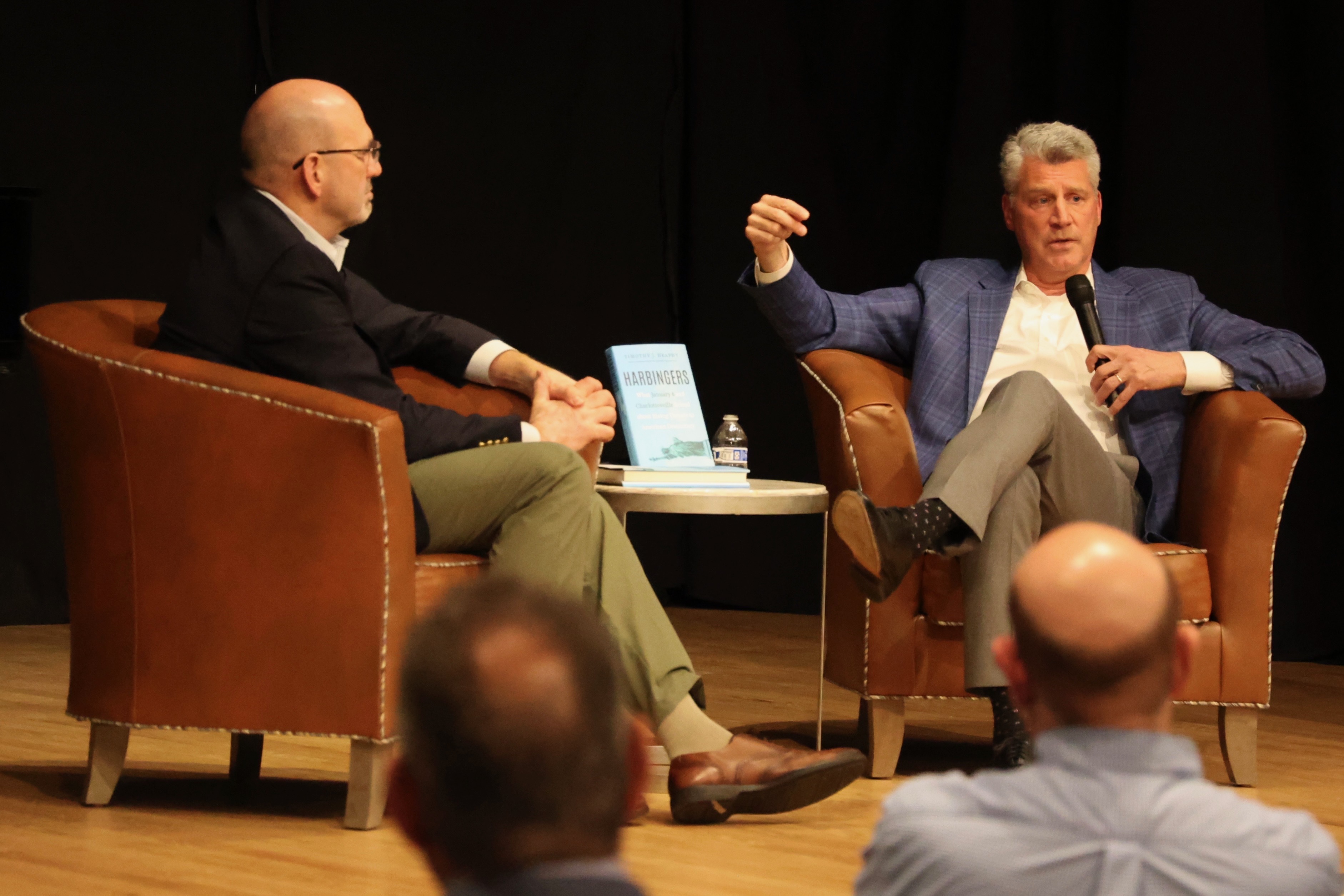Valentin-Yves Mudimbe, a Congolese-American philosopher, cultural historian, and novelist "who questioned the West's intellectual tools for appraising Africa, identifying them as part of what he deemed a colonizing apparatus," died April 22, the New York Times reported. He was 83.
An emeritus professor of literature at Duke University, Mudimbe's landmark book, The Invention of Africa (1988), became a standard text in African studies courses, deconstructing "what he called 'the colonial library': the 19th- and 20th-century accounts of Africa by European anthropologists, explorers and missionaries whose aim, in Mr. Mudimbe's view, was to further colonialism. His ambition was to call into question the basis for European understanding of Africa," the Times wrote.
Mudimbe left Congo more than four decades ago after Mobutu Sese Seko, dictator of what was then called Zaire, asked him to join his Central Committee. Mudimbe, who was teaching literature at the National University of Zaire in Lubumbashi, instead moved to the U.S. on a Fulbright fellowship. He stayed there for the rest of his life, teaching at Haverford College, Duke, and Stanford before returning to Duke.
His first book was followed by The Idea of Africa (1994), and Mudimbe spent much of his subsequent career expounding on those two works, the Times noted. Other works include three novels, all translated into English: Entre les Eaux (Between the Waters, 1973), Le Bel Immonde (Before the Birth of the Moon, 1976), and L'Écart (The Rift, 1979). After establishing himself in the U.S., he focused on essays and philosophy with books like L'Odeur du Père (1982), Parables and Fables (1991), and Tales of Faith (1997).
His analysis was shaped by "an extraordinary mastery of the European intellectual world," said Mamadou Diouf, director of Columbia University's Institute for African Studies, who added that Mudimbe could "engage in the epistemological discussion from several different angles: He reflected on Africa from an African angle, and he reflected on the way in which Africa was conceived from Europe."
Diouf also observed: "He said that the tragedy of African thinkers was not to be able to get out of the colonial library. He was looking for ways to think about Africa outside of the colonial library." But perhaps, he added, "he didn't take into enough account other libraries."
 "When writing My Friends--when I was really stuck and struggling with my confidence--I went with my 12-year-old daughter to The English Bookshop in Stockholm. It was a Saturday, it was freezing cold outside, and the place was absolutely PACKED with teenagers. They were all insanely passionate about books I'd never heard about. My daughter went on and on about book genres I didn't even know existed. Then all of a sudden, one young woman asked a staff member, 'Do you have White Nights by Dostoevsky?'
"When writing My Friends--when I was really stuck and struggling with my confidence--I went with my 12-year-old daughter to The English Bookshop in Stockholm. It was a Saturday, it was freezing cold outside, and the place was absolutely PACKED with teenagers. They were all insanely passionate about books I'd never heard about. My daughter went on and on about book genres I didn't even know existed. Then all of a sudden, one young woman asked a staff member, 'Do you have White Nights by Dostoevsky?'






SHELFAWARENESS.1222.T1.BESTADSWEBINAR.gif)
 The Globe Pequot Publishing Group is purchasing Square One Publishers, the Garden City, Long Island, N.Y., publisher that specializes in nonfiction books on health, cooking, parenting, business/personal finance, self-help, and history. Founded in 1999 by longtime publisher Rudy Shur, Square One has a backlist of 500 titles. Shur will continue in his role and acquire new books when Square One becomes a stand-alone imprint of Globe Pequot on May 1. Square One will be sold and distributed by Globe Pequot's sister company, NBN, until both move to Simon & Schuster on September 1. Effective immediately, all orders should be directed to NBN.
The Globe Pequot Publishing Group is purchasing Square One Publishers, the Garden City, Long Island, N.Y., publisher that specializes in nonfiction books on health, cooking, parenting, business/personal finance, self-help, and history. Founded in 1999 by longtime publisher Rudy Shur, Square One has a backlist of 500 titles. Shur will continue in his role and acquire new books when Square One becomes a stand-alone imprint of Globe Pequot on May 1. Square One will be sold and distributed by Globe Pequot's sister company, NBN, until both move to Simon & Schuster on September 1. Effective immediately, all orders should be directed to NBN. The Indiegogo campaign went live in late February and has so far raised just over $9,400. Money raised through the campaign will go toward rent, payroll, paying off loans, and other expenses. All donors will be featured on a "thank you" wall on the store's website and at the bookstore, while larger donations include rewards like 10% off all purchases for a year, VIP seating at author events, and more.
The Indiegogo campaign went live in late February and has so far raised just over $9,400. Money raised through the campaign will go toward rent, payroll, paying off loans, and other expenses. All donors will be featured on a "thank you" wall on the store's website and at the bookstore, while larger donations include rewards like 10% off all purchases for a year, VIP seating at author events, and more.

 Intuitive Eating for Diabetes: The No Shame, No Blame, Non-Diet Approach to Managing Your Blood Sugar
Intuitive Eating for Diabetes: The No Shame, No Blame, Non-Diet Approach to Managing Your Blood Sugar Acclaimed children's author/illustrator Mike Curato (
Acclaimed children's author/illustrator Mike Curato (